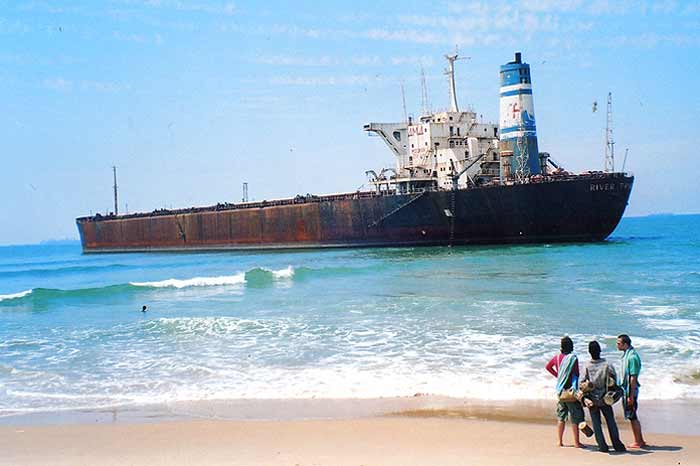/regions/india
India
Institutional framework for regulating use of groundwater in India – A report by IRMED for MoWR
Posted on 23 Jan, 2011 08:37 PM
The basic objectives of this study were -
Performance audit of Accelerated Irrigation Benefit Programme (AIBP) by CAG (2010)
Posted on 23 Jan, 2011 07:29 PMThe audit was conducted as a follow up audit of the earlier report on AIBP (No 15 of 2004) to assess whether the performance of AIBP had improved, and also whether the key issues highlighted in the earlier report had been appropriately addressed.
Environment audit report - Comptroller and Auditor General of India (CAG) (2010-2011)
Posted on 22 Jan, 2011 07:22 PMThis document by the Comptroller and Auditor General of India (CAG) includes an audit report, which highlights issues related to adequacy, effectiveness of programmes, schemes, interventions made by the Ministry of Environment and Forests to tackle important environmental issues like deforestation, biodiversity and pollution control.
It aims at sensitising policy makers to look at environmental issues with a holistic approach and address deficiencies in programmes/schemes/policies so that the environment can be conserved effectively.
Implementing Vessel Monitoring System in India
Posted on 22 Jan, 2011 03:19 PMImplementing Vessel Monitoring System in India
World Water Monitoring Day, 2010 - Neer Foundation organises water testing program in the northern states of India
Posted on 21 Jan, 2011 08:17 PMIndia is often referred as “The land of rivers”. For generations India has had a strong tradition of preserving water judiciously. Our forefathers were visionaries who had the wisdom of thinking ahead of future. They anticipated the growing population which would lead to an increased demand for water in the future. Like today we have civil engineers, hydrologists and architects, who have acquired knowledge through lesser known or prestigious Institutions, our ancestors carried with them the same inborn talent to preserve water, that too without any formal degrees. They were people of intellect and had great sense of developing natural water resources. In a total of about 6.5 lakh villages of the country, approximately 50 lakh ponds and other similar structures exist. Unfortunately, during the past two decades the water quality has deteriorated at a rapid pace. One of the major reasons for this is the untreated waste water reaching the water sources, turning them to be a dirty drain. The Ganga and the Yamuna, the two most sacred rivers of our country are no exception to it. This has been achieved though an association with the World Water Monitoring Day program last year.
Towards adopting nanotechnology in irrigation: Micro irrigation systems
Posted on 21 Jan, 2011 07:36 PMIndia is predominantly an agricultural country and even with current orientation towards services, still agriculture contributes ¼th of total GDP of the country, 15 percent of total export and 65 % of total population’s livelihood.
TH!NK5:Water Competition has been officially launched!
Posted on 21 Jan, 2011 06:59 PMForwarded to the portal by: Hanna McLean
Video Editor needed for 2-3 month project at Digital Empowerment Foundation
Posted on 21 Jan, 2011 06:42 PMForwarded to the portal by - Mahima Kaul
The Digital Empowerment Foundation is working on a resource portal called the Digital Knowledge Commission (DKC) which will house information, including videos, about rural projects that use Information & Communication Technologies. For this, we need an in-house editor who can use FCP and is very good (read: efficient) but most of all, has an interest in some kind of development work, so that the videos are edited beautifully.
National disaster management guidelines - Management of floods (2008)
Posted on 21 Jan, 2011 06:35 PMThese guidelines aim at minimising vulnerability to floods and consequent loss of lives, livelihood systems, property and damage to infrastructure and public utilities due to disasters such as floods.
Towards ruin: Regularisation rather than regulation has become the norm in our coastal policy at present, which is actively undoing one of India’s most significant environmental regulations - Claude Alvares
Posted on 21 Jan, 2011 03:58 PM
MV River Princess Stranded for 10 years now, the grounded ship has been wreaking ecological havoc on Candolim beach in Goa
Indira Gandhi’s concerns about protecting the ecology of India’s coasts, which held sway for almost 20 years, are being subverted under a regime supervised by her daughter-in-law and grandson.